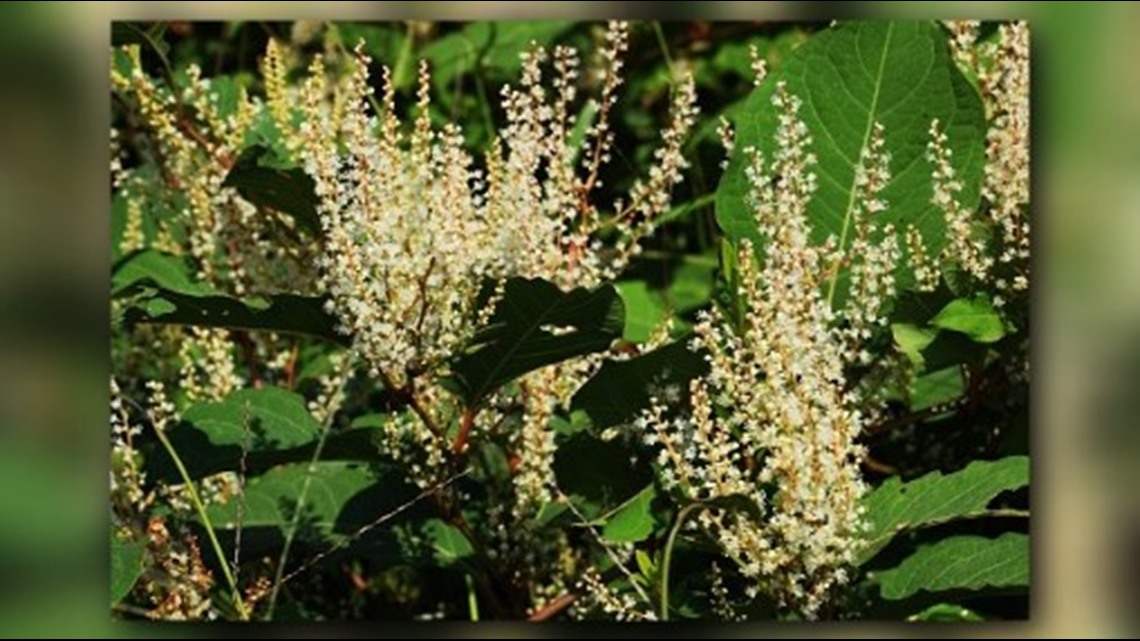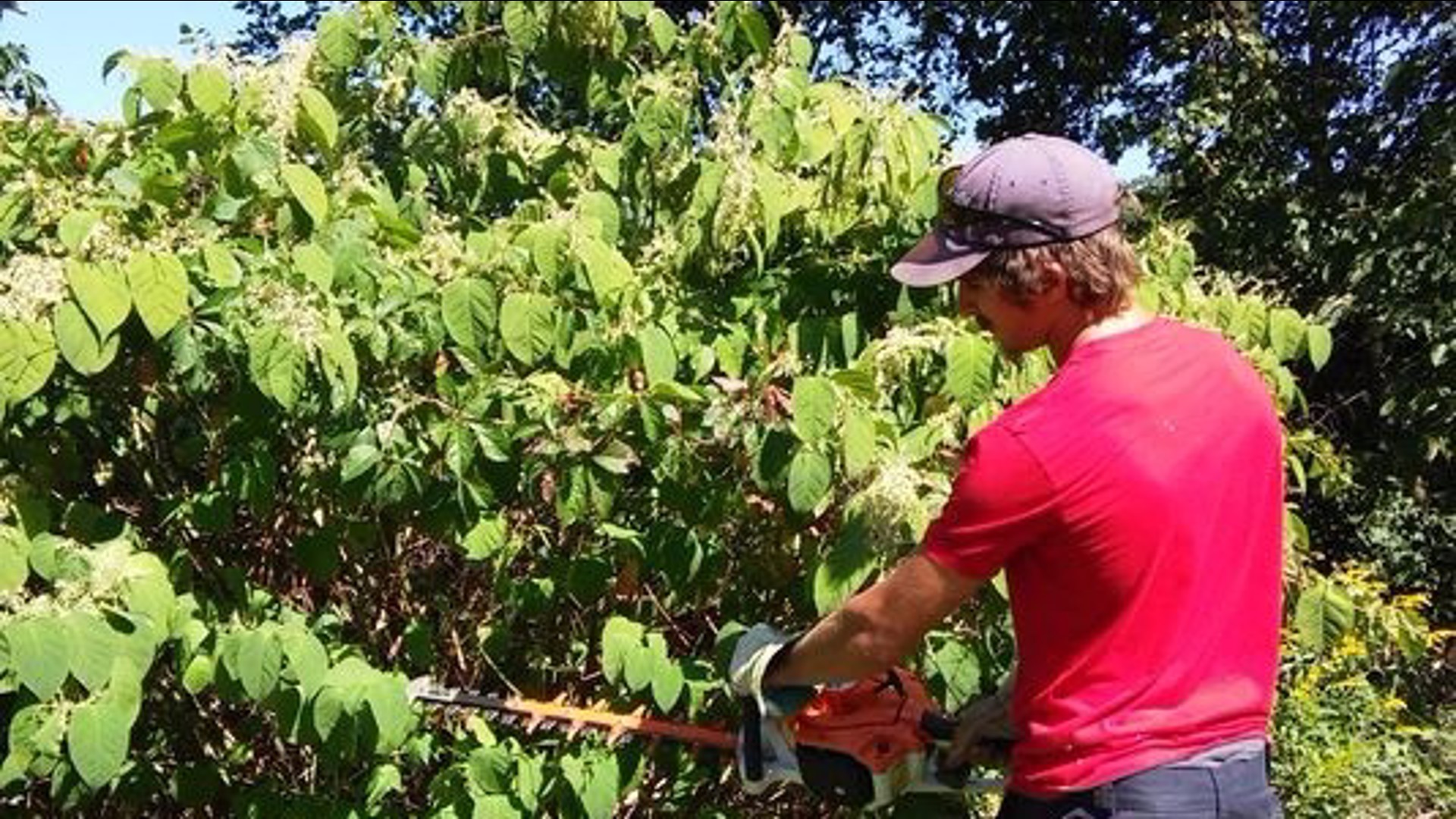MICHIGAN, USA — Officials are passing along a warning about the spread of an invasive plant in Michigan that's blooming right now.
Japanese Knotweed can grow nearly ten feet tall and is so strong it can bust through concrete. It's already established in Michigan, but experts are hoping to slow its spread.
When fully grown, it becomes a large shrub with spikey white flowers. The stems have a fine white coating that rubs off easily. The flowers bloom in August and September.
The problem is the Japanese Knotweed grows aggressively, taking over native plants by blocking sunlight and it also releases a chemical to suppress the growth of competing plants.


"Because it's so good at growing and spreading, it will out-compete native plants that are of value to the ecosystem. So you know, our native flowers that are important for pollinators, native plants that insects use to eat that form the basis of our food chains," said Murielle Garbarino with the Ottawa Conversation District.
"This plant is very good at out-competing our native plants because it doesn't have any predators," she said.
Getting rid of Japanese Knotweed is very challenging but if you have it growing on your property, experts say now is the time to try and kill it.
Using a product like Round-Up works best, and is found to be 94% effective. You do need to soak the entire plant depending on the size, but it might take a couple of years before it fully dies off. Garbarino, who also oversees the West Michigan Cooperative Invasive Species Management Area, says it's important to read and follow the directions on the herbicide label when treating any plant.
Japanese Knotweed is so strong it can break through cement, so you want to make sure it does not grow near your driveway or the foundation of your home.
If you have other questions, Garbarino says to contact your county conservation office.

